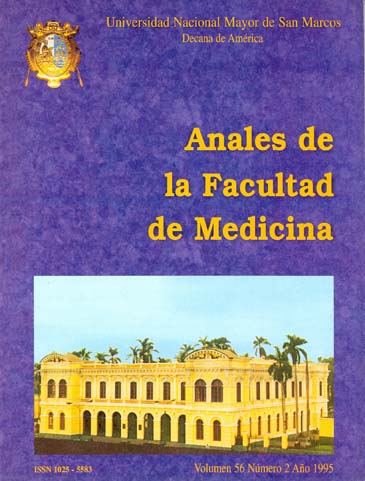Conditioned consent in organ transplantation
DOI:
https://doi.org/10.15381/anales.v56i2.5248Keywords:
Organ transplantation, ethics, altruism, professional - family relationsAbstract
The attitude of 184 family groups toward death and organ donation in encephalic death is analized. Seventy-seven per cent donations done between 1992 and 1995 had family condinioted consent. The family preferred to provide only the kidneys in order to avoid necropsy and keep the corpe's integrity. Furthermore, poverty of potential donors made the family to ask for economical support for hospitalization and burial. To avoid possible commercialization of of organs for transplantation, the family requested to identify recipients or to come into the operating room in order to make sure the destiny of donated organs. Unlike USA and Europe, Peru and maybe other developing countries have the special situation of conditioned consent in organs donation, necropsy denial and request for "compensation" for donation. Transparence in organ transplantation is the probable only alternative to commercialization of organs.Downloads
Published
1995-12-29
Issue
Section
Trabajos originales
License
Copyright (c) 1995 Miguel Camacho, Pedro Mendez

This work is licensed under a Creative Commons Attribution-NonCommercial-ShareAlike 4.0 International License.
Those authors who have publications with this magazine accept the following terms:
- Authors will retain their copyrights and guarantee the journal the right of first publication of their work, which will be simultaneously subject to Creative Commons Attribution License that allows third parties to share the work as long as its author and its first publication this magazine are indicated.
- Authors may adopt other non-exclusive licensing agreements for the distribution of the version of the published work (eg, deposit it in an institutional electronic file or publish it in a monographic volume) provided that the initial publication in this magazine is indicated.
- Authors are allowed and recommended to disseminate their work over the Internet (eg: in institutional telematic archives or on their website) before and during the submission process, which It can produce interesting exchanges and increase quotes from the published work. (See El efecto del acceso abierto ).
How to Cite
1.
Camacho M, Mendez P. Conditioned consent in organ transplantation. An Fac med [Internet]. 1995 Dec. 29 [cited 2025 May 24];56(2):17-9. Available from: https://revistasinvestigacion.unmsm.edu.pe/index.php/anales/article/view/5248



